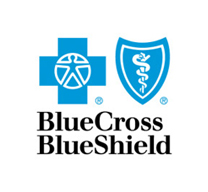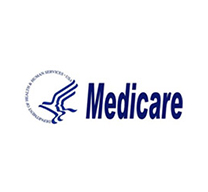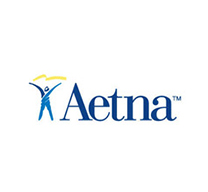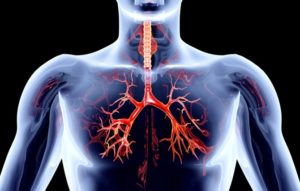As a trusted partner with Blue Cross and Blue Shield Health Insurance, Jupiter Internal Medicine Associates work closely with Blue Cross Blue Shield patients in order to receive a positive health experience. If you or a loved one has Blue Cross Blue Shield Health Insurance, allow a clinical team member help you with your healthcare needs.
Now accepting new Blue Cross Blue Shield patients in Jupiter, Juno Beach, North Palm Beach, Hobe Sound, Singer Island, Tequesta and Palm Beach Gardens area.
Medicare
As a trusted partner with Medicare, Jupiter Internal Medicine Associates work closely with Medicare patients in order to receive a positive health experience. If you or a loved one has Medicare health insurance, allow a clinical team member to help you with your healthcare needs.
Now accepting new Medicare patients in Jupiter and Palm Beach Gardens.
AvMed Health Insurance
As a trusted partner with AvMed Health Insurance, Jupiter Internal Medicine Associates work closely with AvMed patients in order to receive a positive health experience. If you or a loved one has AvMed Health, allow a clinical team member to help you with your healthcare needs.
American Heritage Insurance
With headquarters in Cincinnati, Ohio, American Heritage is a small insurance company. Jupiter Internal Medicine Associates physicians and clinicians are considered in-network providers for American Heritage Health Insurance. American Heritage Insurance Group is an independent insurance agency representing over 20 different insurance companies.
Aetna
In-Network Primary Care Physicians Accepting Aetna Health Insurance
If you or a loved one has health care insurance through Aetna, the physicians at Jupiter Internal Medicine Associates are in network providers.
Aetna is the brand name used for products and services provided by one or more of the Aetna group of subsidiary companies, including Aetna Life Insurance Company and its affiliates (Aetna).
Developing an Asthma Action Plan
Developing an Asthma Action Plan
An Asthma Action Plan is a tool you can use to help manage your asthma. You and your doctor can work together to develop an action plan. In it will include your list of triggers and your asthma severity classification, current treatment, symptoms, history and emergency procedures.
An asthma action plan has three zones which classify your condition, which is also labeled in different colors (green, yellow, red or green, is your goal on a daily basis which means you have no asthma symptoms and feeling great. Yellow, means you are experiencing difficulties. It is time to slow down and use quick-relief medicine. Red means you have severe asthma symptoms. You need medical treatment if symptoms do not improve.
You can work with your doctor determining your zone. Your peak flow rate or symptoms will determine your zones. A Peak Flow Meter is used to know your peak flow rate. Also, tracking your symptoms will also determine your zones.
Remember, you can control your asthma and can live an active life working together with your doctor.
Evaluating Risk of Cardiovascular Disease
A person can be at high or moderate risk to develop CVD as discussed below:
- Moderate risk doesn’t mean you are free from CVD. It means you need to make relevant changes in your lifestyle before it is too late. Though medicines are not usually prescribed in this category, you should do something to reduce whatever risk you have.
- High risk. If you are at high risk of developing a cardiovascular disease, we prescribed treatment with medicine and guide you along on your lifestyle issues.
How Jupiter Internal Medicine Associates, P.A. can help you with Cardiovascular Disease
We aim to give the right diagnosis and treatment so we can lead our patients to the improved health outcome.
Treatment of Cardiovascular disease is composed of medication and change in lifestyle.
- Medication to control the disease is usually prescribed.
- You will be advised to change lifestyle like quit smoking, change diet, participate in the active lifestyle.
- You will be referred to the specialist if you need to like: dietician, stop smoking clinic or surgeon. Serious cases usually undergo surgery.
There are four major types of CVD as follows:
- Coronary heart disease (CHD). When your heart’s blood supply is interrupted because of the fats (atheroma) in your coronary arteries, CHD occurs. This can cause chest pains(angina) and if the coronary arteries are completely blocked, you can have a heart attack.
- Stroke. It is a serious medical condition which the blood supply to the brain is interrupted. Since the brain needs a continuous supply of oxygen and nutrients provided by blood, these things should not be restricted or stopped. But because of blocked arteries, the blood supply is disturbed and restricted. This causes brain cells to die and will lead to brain damage or even death. Therefore, CVD is not something we take for granted.
- Peripheral vascular disease (PVD). This occurs when there is a blockage in the arteries in your limbs. Pain in your legs, thigh hips and calves are the usual problems. There will be a risk in getting the infection in an affected limb. In some serious cases, it can cause gangrene or tissue death that sometimes leads to amputation.
- Aortic Disease. This occurs when the aorta (the largest blood vessel) is restricted. It weakens and bulges outwards that causes pain in the chest, back or abdomen. The end result is that the amount of oxygen and nutrients available for the organs of the body is decreased.
If you have problems in any of CVD discussed above, you need to be regularly checked by a Clinical Team Member at our practice.
HouseCall Specialists offer Senior Living Residents a Savvy Solution to Home Visits
Visit Our HouseCall Specialists Website
As the Founder of Jupiter Internal Medicine Associates, Dr. Daniel Boss is please to offer senior living communities home medical visits for Medicare patients. Patients living at senior living communities in Palm Beach Gardens, Jupiter, Tequesta or Juno Beach can receive a house call visit by Advanced Practical Registered Nurse Katherine Hnis.
Providing a Continuation of Care for Jupiter Internal Medicine Associates Patients at Home
Jupiter Internal Medicine Associates is pleased to announce an extension our medical practice for Medicare patients unable to come to our office. HouseCall Specialists offers chronically ill patients who are unable to come to our office an alternative to medical care. HouseCall Specialists providers offer residents living in Tequesta, Palm Beach Gardens, Juno Beach, Jupiter, Singer Island and North Palm Beach in home visits instead of at our office.
Medical Services Offered through HouseCall Specialists
- Mobile X-Ray Services
- Digital ultrasound
- Mobile EKG
- Venous doppler Studies
- Mobile Diagnostic Service
- Home Labs
- Digital radiography
- Flu Shots
- Diabetic Management
- Annual Physicals
- Medication Management
- Transitional Care Visits
- Care Coordination for durable medical equipment, home nursing, home physical therapy, home occupational therapy, home speech therapy and custodial care.
Senior Living Communities Frequently visited by House Call Specialists
Tequesta Terrace – Assisted Living and Memory Care – Tequesta, FL
Mangrove Bay – Juno Beach, FL
LaPosada Senior Living Continued Care Retirement Community – Palm Beach Gardens, FL
The Waterford – Independent Living and Skilled Nursing and Rehab Center – Juno Beach, FL
Your Life – Assisted Living and Memory Care – Palm Beach Gardens, FL
Discovery Village – Assisted Living and Memory Care – Palm Beach Gardens, FL
Addington Place – Assisted Living, Independent Living and Memory Care – Jupiter, FL
For more information and to see if you qualify for a house call visit, please contact Jackie at 561.331.1996
Flu? Cold? Sinusitis? Bronchitis? …Do I need an antibiotic (Zpak!)?
Understanding the Need for Antibiotics
A very small percentage of sinusitis and bronchitis are caused by bacteria and will need antibiotics. The rest (and all flu and colds) are caused by viruses, which are very, very biologically different from bacteria and therefore antibiotics will do nothing to them.
Think about it like this: A virus is like a tree and a bacterium (singular for bacteria) is like a dog (but actually, they are even more biologically different from one another than a tree and a dog are!). Trees and dogs sometimes interact, but if you try to give your dog plant food, it’s not going to go well. Dogs’ systems can’t do anything with plant food and viruses can’t do anything with antibiotics. In recent years, antiVIRALS have been developed for influenza (and other illnesses caused by viruses, like herpes), but again, these are very different medications than what we think of as antibiotics.
How Do You Know When You Might Need Antibiotics?
Well, if you have a chronic lung disease like COPD or are immunosuppressed from rheumatologic medication, cancer or HIV, you may need them sooner rather than later (because dangerous bacteria can quickly hop on the trail of viruses in these folks). BUT, if you have a healthy, functioning immune system and nice, pink lungs, you should probably just follow your grandmother’s advice and have a big bowl of chicken soup and stay in bed (if you can). You will be better in 1-3 weeks. If things do not seem to be steadily improving after the first 5 days or if there are fevers >100.5 for more than 3 days or return after they initially break, it’s time to come in. Green and yellow nasal discharge and/or phlegm DO NOT mean you have a bacterial infection (old wives’ tale alert!). Green or yellow discharge means your body is doing a great job fighting off the viral infection!
Helpful Tips to Treating the Common Cold
Tips to treat the common cold: Stay hydrated and get lots of rest. Medication like Sudafed (you have to ask the pharmacist for and cannot take if you have high blood pressure), taken every 4-6 hours (but not after 5 p.m. as it can bring on sleeplessness) can help to decongest you. Mucinex, steam and saline nasal sprays may be helpful as well. Stay away from any nasal spray that is not plain saline! Zinc lozenges, taken every 3 hours, have also been shown to reduce the time you are sick.
Helpful Tips to Treating Sinusitis
Tips to treat sinusitis: see the above recommendations. Many people also find a neti pot helpful in treatment and prevention. If you have bloody or pus-like nasal discharge, persistent fevers, redness on your face or severe pain in one area of your face, it’s time to get checked out in the office for a bacterial sinusitis.
Helpful Tips to Treating Bronchitis
Tips to treat bronchitis: This is usually just a bad cough if you don’t have lung disease. It is caused by a virus and antibiotics don’t help it. Along with standard cough suppressants and lozenges, you may also consider something called Pelargonium syrup (found in a health food store), which has been shown in a well-done study to help with a cough. If you have fevers lasting more than 3 days or start to get better and then get worse, it’s time to get checked out for pneumonia (which is helped by antibiotics). And remember, the average VIRAL cough lasts 18 days!
Helpful Tips to Treat the Flu
Tips to treat the flu: Flu and pneumonia, which can be hot on its trail, is actually the eighth leading cause of death in the United States. Getting your flu shot is the best chance you have at not getting the flu! It is not a cold (it is caused by a different family of viruses than the colds are). The fevers are much higher than with a cold or the other infections just listed. Typically higher than 102o! This usually comes on quite suddenly and is accompanied by bone-crushing aches. It is hard to get out of bed. There can be a cough, sore throat and nasal discharge, but usually not much. You don’t have to do anything to treat the flu (except rest and stay hydrated), but if treated within 48 hours of the onset of symptoms, medication like Tamiflu (which can cause GI to upset and sometimes psychosis in small numbers of people) can help you get better a day or two earlier. It may also help people who live with someone who has the flu, not get it. If you have the flu, don’t spread it to others! Stay home until 7 days have gone by or 24 hours after the fevers go away (whichever is longer). If you have to go out in public, please wear a surgical mask. If you start to get better and then take a turn for the worse, CALL IMMEDIATELY. This could be pneumonia that hops on the trail of the flu and can be very dangerous.
Zpack May Not Always Be a Solution
Why can’t I just take the darn antibiotic (Zpak!)?
You may or may not have heard about bacterial resistance. Microbiologists and infectious disease specialists have been worrying about it for a long time and now, it’s here. Heard of MRSA? It is the aggressive bacteria that few antibiotics can treat! It is a man-made problem from the overuse of antibiotics. There are other bacteria that are being created from the overuse of antibiotics that if you haven’t heard about yet, you will—VRE, pan-resistant gram negative bacteria, etc.
http://www.nytimes.com/2010/02/27/business/27germ.html
Taking antibiotics can also make you more susceptible to a nasty diarrheal infection called Clostridium dificile (c.dif).
http://www.nytimes.com/2009/04/14/health/14well.html?em
It may even make you fat (remember, livestock are given antibiotics in their feed to fatten them up—that’s a big problem for another discussion)!










